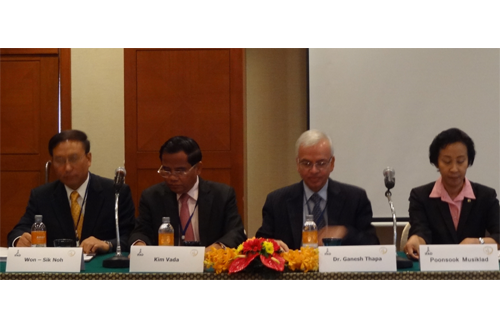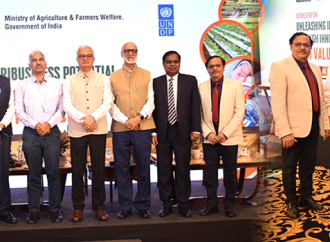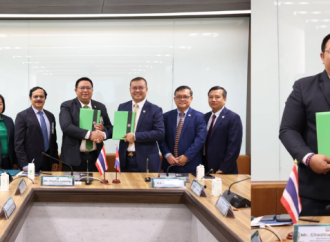Recently we had the special honor of officially welcoming eight new APRACA members consisting of (1) BRAC Bangladesh, (2) Microcredit Regulatory
The recently concluded inception workshop of the IFAD-supported APRACA grant project last 28-29 March 2013 held at Amari Watergate Hotel in Bangkok, Thailand focused mainly on synergism and collaborative partnerships toward accessing rural finance and agricultural development in rural communities as emphasized by Dr. Ganesh Thapa, IFAD Regional Economist for Asia and the Pacific and supported by MsPoonsookMusiklad, senior vice president and representing Mr. Luck Wajananawat, president of the Bank for Agriculture and Agricultural Cooperatives in Thailand, and Mr. Kim Vada, acting chairman of APRACA and the Director General of National Bank of Cambodia in their speechesduring the opening program.
MsMusiklad shared Thailand’s BAAC experiences with rural farmers on rural financial programs, processes, and access towards credit and loan services. On the other hand, Mr. Vada added Cambodia’s rural financial system as a very good case for knowledge sharing and documentation but more work should be done towards financial accessibility.
It was further noted as part of a dynamic cadre of institutions in rural finance; the Philippines, India, Thailand, and Indonesia could serve as sources of knowledge expertise for the project country sites to learn rural finance accessibility particularly in Cambodia, Nepal, Bangladesh and Myanmar.
Rural financial institutions both from government and non-government attended the workshop to discuss and share ideas, strategies and mechanisms in accessing rural finance. At the same time, finalization of project targets and activities were done to guide the implementers achieve the goal and objectives holistically.
The identified collaborative efforts target the rural farmers and entrepreneurs including women and youth who are painstakingly working for the development of their rural communities. With this concern, the project dubbed as FinServAccess will enable these individuals to work together with rural financial institutions in drawing credit and loan services including support services like training, research and extension and development.
During the workshop, invited participants shared their country’s latest activities on rural finance and agricultural development through board and powerpoint presentations. The voluminous experiences and knowledge-based expertise in improving the lives of therural people and communities in Nepal, Cambodia, Bangladesh and Myanmar were described and explained exhaustively.
Specifically, Nepal participants presented the rural self-reliance fund (RSRF) aimed at uplifting the socio-economic status of deprived and economically marginalized people and communities through wholesale credit to cooperatives and non-government organizations. This being said, there are several areas the project can venture into to ensure sustainability of endeavors through effective and efficient resource accessibility.
Cambodia’s rural financial programs like policies and strategies in microfinance, engagement towards financing renewable energy and improving rural finance outreach and banking services enhance access of rural people to be more pro-active and responsive. On the other hand, Bangladesh experience on working with women boosts an opportunity for local partnership and empowerment at the grassroots. Myanmar’s experience on loan repayment scheme will surely be an advantage on learning intervention for the project’s stakeholders. Given these vast knowledge sharing, the project will definitely ensure a more participative endeavor towards sustainable rural finance activities.
In addition, five expert presentations were delivered to serve as springboard of best practices and innovation dissemination in making rural financing more viable and accessible to rural farmers. Cases on microfinance in agriculture, rural finance coordination and mobilization, renewable energy platform, value chain framework and phases, and risk management strategies depicted variety of lessons and experiences for the project to revisit in relation to rural finance access. Notably, the papers showed several challenges and opportunities which could definitely contribute towards more dynamic and organized rural activities in the next three years for the welfare and development of rural communities in the project sites and the Asia-Pacific region through rural finance initiatives, interventions, innovations and practices (MAquino).















